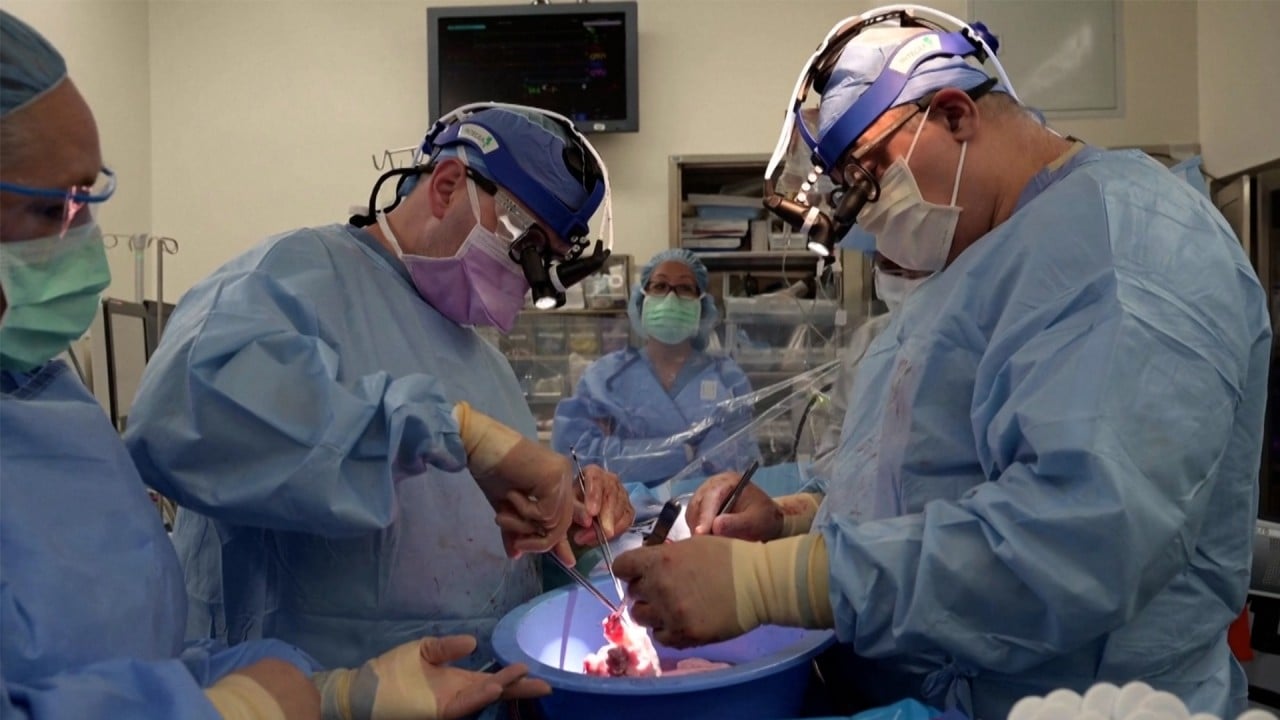
Chinese patient receives world’s first gene-edited pig liver transplant
- Brain-dead human subject shows no signs of rejection 96 hours after receiving organ in ‘first of its kind’ operation
- While cross-species transplants raise some ethical questions, the breakthrough could help alleviate global shortage of donor organs
The pig liver, which was edited to delete multiple genes associated with proteins that cause organ rejection, was transplanted into a brain-dead patient on Sunday.
The transplant liver’s blood and liver bile flow were all “good” and the patient showed no sign of organ rejection 96 hours after the surgery, according to a WeChat post on Thursday by the Air Force Medical University, the team’s home institution.
This transplant was the “first of its kind in the world”, the university said.
Chinese scientists create gene-editing tool that simplifies process in plants
Liver disease accounts for around 2 million deaths annually worldwide, according to a study in the Journal of Hepatology last year.
This process, known as xenotransplantation, could “benefit more patients with end-stage liver disease, and may completely replace” human liver transplants, the university’s WeChat post said.
But livers pose a bigger challenge. The organ is more complex in structure and function, and those from pigs “cannot completely replace the human liver”, according to the post.
To address this, the researchers and surgeons performed an auxiliary transplant – in which the patient’s original organ is kept alongside the transplant organ in the body.
The surgeons cut one of the large veins in the patient’s liver and attached the transplant liver to either end of the vein after it was removed from the donor pig and trimmed to a certain weight.
The team pioneered this method of attaching the transplant liver and ensuring good blood and liver bile flow. This “will become a new option for the clinical application of xenogenic liver transplantation”, the WeChat post said.
In trials, animals that receive xenogenic liver transplants survive for less time than those that receive hearts and kidneys from another species.
The researchers said that at this stage, xenogenic liver transplants were most suitable as a temporary alternative to human liver transplants or in cases where a patient’s liver function could be restored with the help of the pig’s organ.
“From this perspective, xenogenic liver transplantation has great clinical application value,” the university said.
Xenogenic transplants also pose ethical challenges, such as the breeding of a large amount of animals for their organs and the potential transmission of pathogens from animals, according to the Nuffield Council on Bioethics, a UK-based independent policy and research centre.



